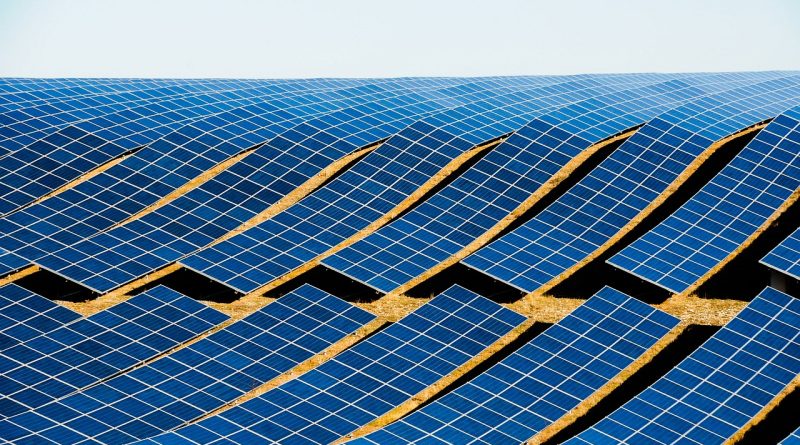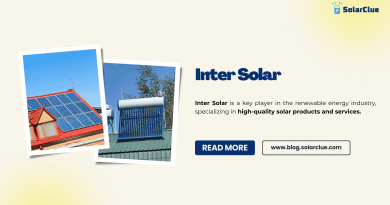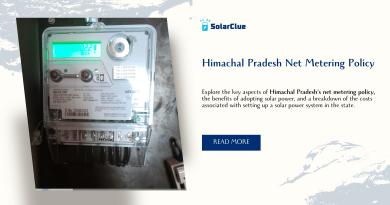Is Solar PV Installation in Delhi Worth It? Exploring Benefits
Solar energy is rapidly gaining popularity as a sustainable and renewable source of power. As the world faces the pressing challenges of climate change and the increasing demand for electricity, more individuals and businesses are considering the installation of solar photovoltaic (PV) systems. In a bustling city like Delhi, India, where energy consumption is high and pollution levels are concerning, the question arises: Is it worth installing a solar PV system in Delhi? This blog will explore the potential benefits and drawbacks of solar PV systems in Delhi, shedding light on the feasibility and return on investment for this green energy solution.
Table of Contents
The State of Energy in Delhi
Before delving into the merits of solar PV systems in Delhi, it is crucial to understand the current energy landscape in the city. Delhi, known for its extreme weather conditions, experiences scorching summers and cold winters, which leads to a significant demand for electricity. The state’s power distribution grid often struggles to meet this high demand, resulting in frequent power cuts and an overreliance on fossil fuel-based energy sources.
Advantages of Solar PV Systems
Clean and Renewable Energy
One of the main advantages of solar PV systems is their ability to generate clean and renewable energy. By harnessing the power of the sun, these systems produce electricity without emitting harmful greenhouse gases. Given Delhi’s pollution problem, adopting solar energy can significantly contribute to reducing the city’s carbon footprint and improving air quality.
Cost Savings
Installing a solar PV system in Delhi can yield long-term cost savings. Despite the initial investment required, solar energy is virtually free once the system is up and running. The cost of electricity generated from solar PV systems is lower than that of conventional energy sources, especially considering the ever-increasing utility tariffs in Delhi. Moreover, the Indian government provides various incentives and subsidies to encourage solar energy adoption, further enhancing the financial viability of solar PV systems.
Energy Independence
With a solar PV system installed, individuals and businesses in Delhi can achieve a certain degree of energy independence. By generating their own electricity, they become less reliant on the often unstable power grid, reducing the risks associated with frequent power cuts. This energy independence can also act as a buffer against escalating energy prices, ensuring a stable and secure source of power in the long run.
Low Maintenance and Lifespan
Solar PV systems require minimal maintenance, as they have no moving parts. Regular cleaning and occasional inspections are usually sufficient to keep the system running optimally. Additionally, these systems typically come with warranties ranging from 25 to 30 years, highlighting their durability and long lifespan. Given the persistent nature of Delhi’s harsh weather, the reliability and longevity of solar PV systems prove to be significant advantages.
Challenges and Considerations
Initial Investment
One of the primary challenges to installing a solar PV system in Delhi is the initial investment required. While costs have significantly decreased over the years, it still remains a substantial upfront expense. However, it is important to note that the return on investment for solar PV systems is generally favorable, with savings on electricity bills typically offsetting the initial outlay within a few years.
Space Constraints
Delhi, being a crowded and densely populated city, often suffers from space constraints. Rooftop solar installations are the most viable option for many, but not everyone has sufficient rooftop space for a solar PV system. Additionally, shading from nearby buildings or obstructions can affect the system’s performance. However, technological advancements such as floating solar panels or community solar projects are emerging as potential solutions, catering to those facing space limitations.
Dependence on Sunlight
Solar PV systems rely on sunlight to generate electricity, meaning their output is dependent on weather conditions and the daily solar irradiance. While Delhi experiences ample sunlight throughout the year, the monsoon season and heavy smog can hinder the system’s efficiency. However, with proper system design and efficient installation, the impact of these factors can be minimized.
Regulatory Challenges
Navigating the bureaucratic process of permits, approvals, and net metering can present a challenge when installing a solar PV system in Delhi. However, the Indian government has been proactive in implementing policies and initiatives to streamline the process and make it more accessible. Being aware of the regulatory framework and seeking professional guidance can help overcome these challenges.
Conclusion
In conclusion, choosing a solar PV system in Delhi, India, is a transformative decision for both individuals and businesses. The generation of clean and renewable energy by solar PV systems plays a pivotal role in mitigating the city’s pollution challenges while reducing dependence on fossil fuel-based sources. With the promise of substantial cost savings, energy independence, low maintenance requirements, and an extended lifespan, solar PV systems offered by SolarClue® stand out as an enticing investment opportunity.
While obstacles such as the initial investment, space constraints, reliance on sunlight, and regulatory hurdles are acknowledged, the holistic advantages outweigh these challenges. By embracing solar energy in Delhi, not only can immediate environmental concerns be addressed, but the city can also set the stage for a more sustainable and greener future. SolarClue® is your partner in this transition, empowering Delhi to lead the way in creating a cleaner and sustainable environment for generations to come.
Frequently Asked Questions
Yes, solar PV installation in Delhi can be worth it due to reduced electricity bills, potential income from excess energy, and environmental benefits.
Delhi offers incentives such as subsidies, net metering, and tax benefits to encourage solar PV adoption.
Solar panels generate electricity, allowing residents to offset their electricity consumption and reduce dependency on the grid.
Yes, through net metering, residents can feed excess electricity into the grid and receive credits or compensation for the surplus energy.
Solar PV installation contributes to environmental sustainability by reducing reliance on fossil fuels and lowering greenhouse gas emissions.
The payback period varies but is typically between 4 to 7 years, depending on factors like system size, energy consumption, and incentives.
Yes, Delhi has abundant sunlight, making it suitable for solar PV installations and maximizing energy production.
In most cases, solar PV installations are designed to shut down during power outages to ensure the safety of utility workers.
Challenges may include high upfront costs, space constraints, and the need for public awareness on the benefits of solar energy.
Professionals can conduct site assessments considering factors like roof space, orientation, shading, and energy needs to determine feasibility.




